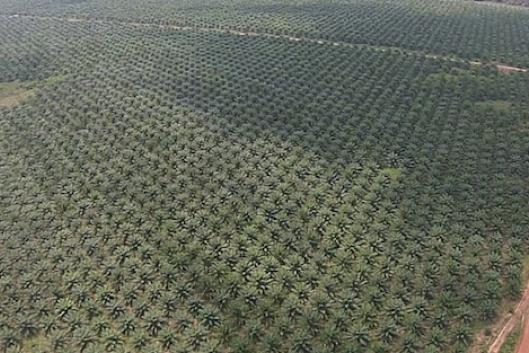Despite the various tactics that try to hide the underlying harm and violence behind large scale tree plantations, each year, communities and movements raise up on September 21st to give visibility to their struggles and to denounce the detrimental impacts tree plantations have on their lives and territories.
Sixteen years ago, community organizers from peasant, indigenous and traditional communities struggling against the expansion of monoculture tree plantations in Brazil, decided that a day was needed to commemorate this resistance. Simultaneous actions and expressions of solidarity from around the world on that day have since provided additional attention to the many strong and diverse struggles against this devastating industry. That is how the 21st of September – the Day of the Tree in Brazil - became the International Day of Struggle Against Monoculture Tree Plantations.
The plantations model is based on the idea of ensuring the highest possible productivity and thus the highest possible profits. This also means, in consequence, ensuring the lowest possible costs. The ecological and social impacts of these tree plantations, whether for producing timber, pulp and paper, fibre, rubber, palm oil, wood chips for bioenergy, carbon credits or for “restoring green cover”, are deeply destructive and borne foremost by communities whose lands have become invaded, encircled and/or polluted by these plantations.
The article from Uganda is a clear example of this, where many of the evicted people that were left with nothing more than 15 years ago, when The New Forests Company began its plantations, continue struggling to get back their lands, livelihood and above all, their dignity. Another article in this bulletin provides a historical description of tree plantation programs in China, and evidences how plantation companies are searching for new opportunities to make profits, such as an alliance with digital companies for supporting “green” consumerism.
Plantation companies plant one single tree specie to increase productivity, typically on the most fertile and flat land they can find (or most often grab), with enough availability of water sources for their trees. Heavy machinery for planting and harvesting is commonly used, along with a substantial amount of chemical fertilizers and agrotoxins. An article in this bulletin from South Africa alerts on the serious impact that tree plantations make on local water sources and how, despite the sound evidence on this, companies keep intensifying production - with biomass’ demand as a recent push for further expansion.
The plantation model also relies on communities’ land titles and deeds mostly being insecure, vulnerable and not recognized by the states. As a result, massive seizing and invasion of community forests and land in the global South is a common practice. States, on the other hand, generally facilitate the implementation and expansion of this model by both giving financial and fiscal incentives, as well as making their security forces available to ensure displacements, evictions and the criminalization of resistance. This violence is mostly done in tandem with corporate security agents. An article in this bulletin from Colombia highlights the role of an oil palm plantation company in grabbing territories marked by violence, displacement and conflict.
Plantation companies, in turn, claim to bring “development”, contribute to forest conservation, and even define their vast monoculture plantations as planted “forests”. But as Marlon Santi of the Kiwicha people of Sarayaku, Ecuador, explains in another article of this bulletin: “For us, “conservation” is seeing the forest as a living being, or as a living forest. Only in this way do we understand what kind of “conservation” we must do (…) In order to live well and for forests to be preserved, it is essential that the word “development” not be used (…) Because this changes our world, and I say world referring to this living space. ”
Despite the vast amount of community voices and research exposing the negative impacts, monoculture tree plantations are still being promoted and sometimes financed by governments, the World Bank, the UN, NGOs, developmental agencies and other institutions. They claim that these monocultures are the solution to the world’s most pressing problems: climate change, forest degradation and energy.
These same actors also pressure for and facilitate the expansion of other damaging false solutions. An article from Brazil reflects on how despite the alarming increase in forest destruction, several Brazilian Amazon states continue to receive REDD+ funds from the German government. Moreover, an interview with an Indonesian activist alerts on the contradictions behind the so-called Ecosystem Restoration Concessions and the threat of constructing a coal-hauling road through the first of such Concessions in the country.
Each year – and despite the certification schemes, offset programs, “green” plantation campaigns and other corporate tactics that try to hide the underlying harm and violence behind the plantation model, - several communities and movements rise up during this month to give visibility to their struggles and to denounce the detrimental impacts tree plantations have on their lives and territories.
The WRM joins once again the International Day of Struggle Against Monoculture Tree Plantations in solidarity with the many communities and groups who tirelessly continue to defend life.
Join the struggle!
Plantations are not forests!
NO to industrial monoculture tree plantations!
